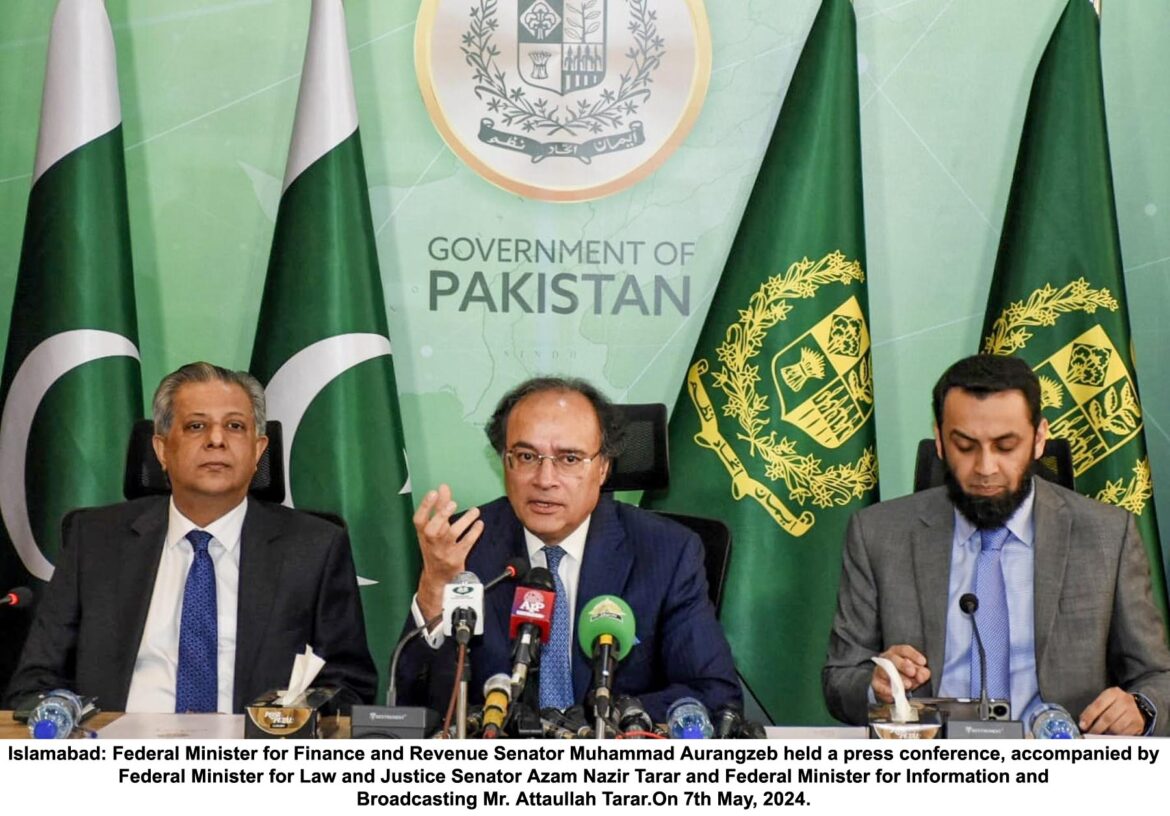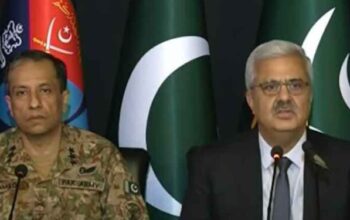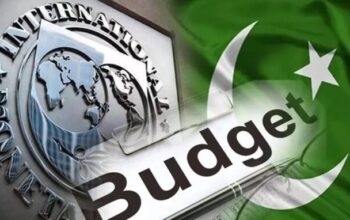By Staff Reporter
ISLAMABAD: Pakistan plans to introduce pension reforms to reduce its ballooning expenditure and secure a new deal with the International Monetary Fund (IMF), Finance Minister Muhammad Aurangzeb said on Tuesday.
The minister said it was vital to reform the country’s pension system, including by raising the retirement age, to mitigate expenditure as Islamabad aims to save the system billions of dollars per year, with a committee formed to propose recommendations.
“Pension payments are a huge liability,” Aurangzeb said at a news briefing in Islamabad. “We need to reform the system to ensure sustainability.”
The reforms are part of Pakistan’s efforts to implement structural changes ahead of a new IMF bailout deal. The country is facing a balance of payment crisis and has struggled with high levels of debt and a large fiscal deficit.
Under the proposed reforms, the retirement age would be raised, and the pension calculation formula would be changed to reduce the financial burden on the government. The reforms would also aim to discourage early retirement and restrict the list of beneficiaries of deceased employees.
“Age is now just a number. 60 is the new 40,” the minister said. “The institution I left before coming here, we took the first step that we raised the retirement age from 60 to 65 because those are your productive years and you can use its result by extending the term,” said Aurangzeb, who previously served as CEO of Habib Bank Limited (HBL).
“Moreover, we will need to change the service structure so that the pension expenditure comes under control.”
The belt-tightening moves come as Islamabad — which is facing a balance of payment crisis — is in talks with the International Monetary Fund (IMF) to secure a new long-term bailout deal. In the past, Pakistan has faced the challenges of revenue generation and government expenditure and struggled with high levels of debt, a large fiscal deficit and an ongoing need for structural reforms to improve its fiscal sustainability.
Previous IMF-mandated reforms under a $3 billion bailout included budgetary adjustments, raised interest rates, and increased energy prices. The upcoming program is expected to focus on strengthening public finances, expanding the tax base, enhancing tax administration, and ensuring debt sustainability while safeguarding the vulnerable segments of society.
An IMF delegation is scheduled to visit Pakistan within the next ten days to negotiate a new loan program, which, according to Aurangzeb, will be “larger and longer” than previous ones.
Law Minister Azam Nazir Tarar said pension reforms would be held across the board, for which legislation was required.
“A large chunk of yearly revenue is utilized on paying retirement benefits and pensions,” Tarar said at the press conference with Aurangzeb. “Legislation is required for this as civil servants, armed forces, judicial organs, and executive organs are included.”
In March this year, Pakistan’s media widely reported that the finance ministry had shared a pension reform program with the IMF to contain growing pension liabilities, with the consolidated federal and provincial pension expenditure projected to increase by over 20 percent from Rs1.252 trillion last year to Rs1.513 trillion this year.
The reforms scheme shared with the lender reportedly seeks to cut the annual federal pension expense on existing employees by changing the formula for pension calculation, slashing the commutation rate, discouraging early retirement through the imposition of a penalty, restricting the list of beneficiaries of the deceased employees, and ending the current practice of multiple pensions.
The World Bank in 2020 warned that salary and pension costs in Pakistan would persistently grow and crowd out other public expenditures in the coming years.
In its fiscal year 2023-24, Pakistan allocated Rs801 billion for superannuation allowances and pensions, up 31 percent from the Rs609 billion budgeted for the previous fiscal year.
Copyright © 2021 Independent Pakistan | All rights reserved




